Economic Trade

How do climate change negotiations affect global trade and economic systems ?
Climate change negotiations play a crucial role in shaping global trade and economic systems. These negotiations aim to find solutions to the challenges posed by climate change, such as reducing greenhouse gas emissions, promoting renewable energy sources, and protecting biodiversity. The outcomes of these negotiations have far-reaching implications for international trade, investment, and economic development. In this article, we will explore how climate change negotiations affect global trade and economic systems. One of the key impacts of climate change negotiations on international trade is the imposition of tariffs and subsidies on goods and services that contribute to climate change. For example, countries may impose higher tariffs on imported goods that are produced using high levels of carbon emissions or other environmentally harmful practices. Similarly, governments may provide subsidies to domestic industries that adopt sustainable practices or invest in renewable energy technologies. These measures can create trade barriers and distort market competition, affecting global trade patterns. Another way in which climate change negotiations can influence international trade is through the implementation of carbon pricing mechanisms, such as carbon taxes or cap-and-trade systems. These mechanisms aim to internalize the external costs of carbon emissions by making polluters pay for their emissions. As a result, companies that rely heavily on fossil fuels or produce high levels of emissions may face increased costs, making their products less competitive in global markets. On the other hand, companies that invest in low-carbon technologies or adopt sustainable practices may gain a competitive advantage. Climate change negotiations often lead to the adoption of stricter environmental standards and regulations at both national and international levels. These standards can affect international trade by creating compliance costs for exporters and importers. For instance, companies that export goods to countries with stringent environmental regulations may need to invest in cleaner production processes or face penalties for non-compliance. Similarly, importers may prefer to source goods from suppliers that meet certain environmental standards, affecting trade flows and market access. Climate change negotiations also have significant implications for investment and economic development. As countries commit to achieving ambitious climate targets, there is an increasing demand for green finance and investment in sustainable projects. This can create new opportunities for investors and businesses that focus on renewable energy, energy efficiency, and other low-carbon sectors. However, it can also lead to capital flight from traditional fossil fuel industries, affecting economies that rely heavily on these sectors. Climate change negotiations often include provisions for technology transfer and innovation cooperation between developed and developing countries. This can help bridge the gap between countries with different levels of technological capabilities and promote sustainable development worldwide. By facilitating the transfer of clean energy technologies and supporting research and development efforts, climate change negotiations can foster economic growth and job creation in emerging markets. Finally, climate change negotiations address the urgent need for adaptation financing and support for vulnerable communities affected by climate change. This includes funding for infrastructure improvements, disaster risk reduction, and other measures that help countries adapt to changing climate conditions. While these efforts are essential for protecting human lives and livelihoods, they also represent significant economic opportunities for businesses involved in climate resilience and adaptation services. In conclusion, climate change negotiations have far-reaching implications for global trade and economic systems. By imposing tariffs and subsidies, implementing carbon pricing mechanisms, setting environmental standards, promoting green finance and investment, facilitating technology transfer and innovation, and providing adaptation financing and support, these negotiations shape the future direction of international trade and economic development. As we continue to grapple with the challenges posed by climate change, it is crucial for policymakers, businesses, and civil society to work together to ensure that our responses to this global challenge are aligned with our collective goals for sustainable prosperity.

How does a carbon tax compare to other climate policies, such as cap-and-trade ?
**Comparison between Carbon Tax and Cap-and-Trade Climate Policies:** **Effectiveness:** - **Carbon Tax**: Depends on tax rate, revenue recycling, and international cooperation. Higher rates may reduce emissions but impact the economy negatively. - **Cap-and-Trade**: Depends on the stringency of the cap, market mechanisms, and offsetting mechanisms. A strict cap can lead to significant emissions reductions. **Economic Implications:** - **Carbon Tax**: Incentivizes innovation, impacts consumers (especially low-income households), and can stimulate economic growth through green technologies. - **Cap-and-Trade**: Introduces cost uncertainty, risks market manipulation, and can create jobs in new technologies and industries related to emissions reductions. **Implementation Challenges:** - **Carbon Tax**: Faces political opposition, equity concerns, and requires international coordination for maximum effectiveness. - **Cap-and-Trade**: Requires complex setup and management, strict enforcement, and may face public opposition if perceived as legitimizing pollution. **Conclusion:** Both policies have pros and cons in addressing climate change. The choice often depends on political feasibility, economic considerations, and public acceptance. What's crucial is taking effective action to reduce greenhouse gas emissions.

In what ways do economic factors influence the development and assessment of climate policies ?
Economic factors play a crucial role in the development and evaluation of climate policies, affecting decision-making processes, implementation measures, and assessments of effectiveness. These influences include cost-benefit analysis considering both direct and indirect costs, as well as quantifying avoided costs and non-market benefits. Economic growth and development must balance immediate needs against long-term sustainability goals, potentially leading to tension between current jobs and investment in cleaner technologies. International trade and competitiveness are impacted by concerns over carbon leakage and green trade barriers. Public acceptance and political will are influenced by perceptions of fairness and economic impacts on different income groups, while innovation and technology development depend on investments in research and development and the affordability of technology transfer. Overall, achieving effective climate action requires a careful consideration of economic dynamics alongside environmental objectives.
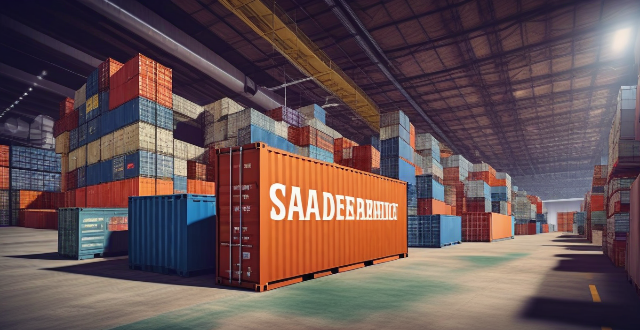
How can international trade contribute to economic recovery ?
International trade can contribute to economic recovery by providing increased market access, access to cheaper imports, stimulating innovation and competition, and enhancing global integration.

How do international trade agreements influence environmental policies and sustainability efforts ?
International trade agreements significantly influence environmental policies and sustainability efforts through harmonization of standards, potential for environmental dumping, promotion of green trade practices, and challenges in balancing trade liberalization with environmental protection. These agreements can either elevate global environmental standards or lead to a race to the bottom in regulatory protections. Policymakers must navigate the complexities of these agreements to ensure they support sustainable development goals without undermining environmental commitments.

Can I trade in my old iPhone for a new one ?
This article discusses various options for trading in an old iPhone for a new one, including Apple's trade-in program, carrier trade-in programs, and third-party trade-in websites. It highlights the benefits and considerations of each option and provides tips on how to get the most value for your old device.

What are the economic implications of the decisions made at climate summits ?
Climate summits like the UNFCCC COP have far-reaching economic implications, affecting sectors from energy to infrastructure and trade. Decisions made at these events can influence investment patterns, job creation, and national economies. Key impacts include shifts towards renewable energy, green innovation, changes in infrastructure, adjustments in fiscal policies, alterations in international trade dynamics, effects on natural resource management, and increased regulatory compliance costs. These decisions are crucial as they help shape a sustainable and climate-resilient global economy.
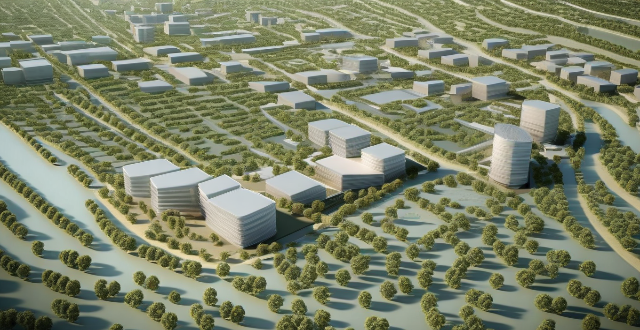
How do economic systems contribute to environmental problems and climate change ?
Economic systems, especially capitalism and industrialization, significantly impact the environment by promoting overproduction, waste, and reliance on fossil fuels. Issues such as built-in obsolescence, global trade emissions, and exploitation of natural resources exacerbate environmental problems. Additionally, population growth and urbanization increase consumption, while market failures and regulatory gaps often overlook environmental costs. Addressing these challenges requires a shift in economic priorities towards sustainability.

How have recent trade tensions impacted international finance ?
Recent trade tensions have had a significant impact on international finance, increasing uncertainty, contributing to volatility in financial markets, and leading to changes in investment patterns. Companies may hesitate to make long-term commitments or expand into new markets due to the uncertainty created by trade tensions. Additionally, sudden announcements of new tariffs or trade restrictions can cause stock prices to drop rapidly, while news of a potential resolution can cause them to rise quickly. Changes in investment patterns may also occur as companies invest more heavily in countries where they are less likely to face trade barriers, and investors shift their portfolios away from industries that are likely to be impacted by trade tensions.

What is the outlook for the European Union's economic recovery ?
The economic recovery of the European Union (EU) depends on political stability, global economic conditions, and domestic policies. Unity among member states and effective governance are crucial for managing crises and implementing growth-promoting policies. Global trade dynamics and supply chain disruptions also play a significant role. Domestically, fiscal stimulus, structural reforms, and a balanced green transition are key. The outlook is optimistic but uncertain, with many influencing factors.

What are the economic benefits of biodiversity ?
Biodiversity plays a significant role in the global economy by providing various economic benefits. These include increased resilience to climate change, support for sustainable agriculture, tourism revenue, pharmaceutical and medical research opportunities, ecosystem services, fisheries and food security, cultural and aesthetic value, innovation and education, risk management and insurance, and trade and livelihoods. Preserving biodiversity is crucial for maintaining these economic benefits across different sectors.

How do ecological taxes compare to other environmental policies, such as cap-and-trade systems ?
The text discusses the comparison of two environmental policies: ecological taxes and cap-and-trade systems. It explains what these policies are, their advantages, disadvantages, and concludes that the choice between them depends on political feasibility, administrative capacity, and public acceptance.

What are the key indicators of economic recovery ?
Economic recovery is a complex process that involves several key indicators. These indicators are used to gauge the health and growth of an economy after a period of decline or recession. Some of the most important indicators of economic recovery include GDP growth, employment rates, consumer spending, business investment, the housing market, inflation rates, trade balance, and stock market performance. Each of these indicators provides valuable insights into the overall health and growth of an economy.

How do environmental subsidy policies impact economic growth ?
The text discusses the impact of environmental subsidy policies on economic growth, highlighting both positive and negative effects. Positive impacts include stimulating innovation and technology development, enhancing energy efficiency, creating job opportunities, and improving public health. Negative impacts encompass distorting market incentives, increasing government expenditures, potential for carbon lock-in, and global trade implications. It concludes that while environmental subsidies have the potential to foster economic growth, they must be carefully designed to avoid adverse effects and contribute positively to sustainable economic development.

What are the key economic indicators to watch for global growth ?
Monitoring key economic indicators such as GDP, inflation rate, unemployment rate, interest rates, trade balance, current account balance, manufacturing and service sector indexes, stock market performance, and consumer confidence indices is crucial for policymakers, investors, and businesses to understand global economic growth. These indicators provide insights into the overall health of an economy, guide decision-making processes, and help predict future trends.

What is the latest update on the NBA trade deadline ?
The NBA trade deadline has passed, resulting in severalThe NBA trade deadline has passed, resulting in several impact the league's play resulting in several notable trades that could impact the league's playoff race and future team dynamics. Key trades include the Boston Celtics acquiring Evan Fournier, the San Antonio Spurs sending LaMarcus Aldridge to the Brooklyn Nets, the Golden State Warriors acquiring Andrew Wiggins and D'Angelo Russell, and the Miami Heat acquiring Andre Iguodala. These moves have implications for both the teams involved and the league as a whole, with potential shifts in power and long-term effects on player development and team rebuilding efforts. Fan reactions to these trades have been mixed, with excitement and disappointment among different fan bases.
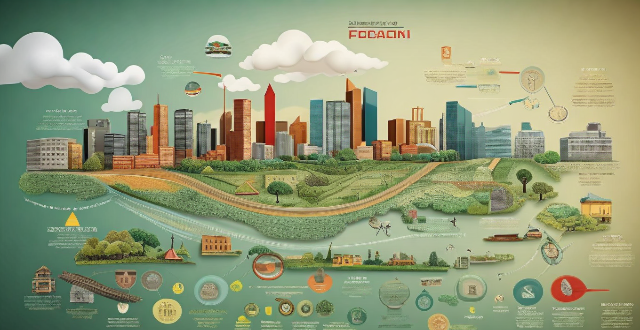
How do global economic trends affect personal wealth growth strategies ?
Global economic trends significantly influence personal wealth growth strategies by affecting factors such as interest rates, inflation, economic growth, global trade, and political stability. Understanding these trends helps individuals make informed decisions about investments and financial planning.
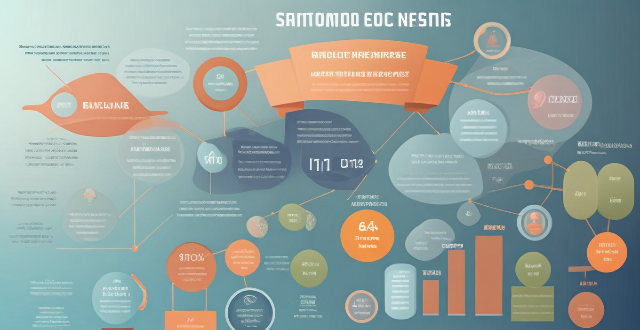
How do economic indicators affect stock market performance ?
Economic indicators significantly impact stock market performance by reflecting the health of an economy. Key indicators include GDP, inflation rate, unemployment rate, interest rates, trade balance, consumer confidence index, and manufacturing index. Each of these measures provides insights into different aspects of economic activity, influencing investor sentiment and decision-making processes. By understanding how these indicators affect the stock market, investors can make informed decisions to maximize returns while minimizing risks.
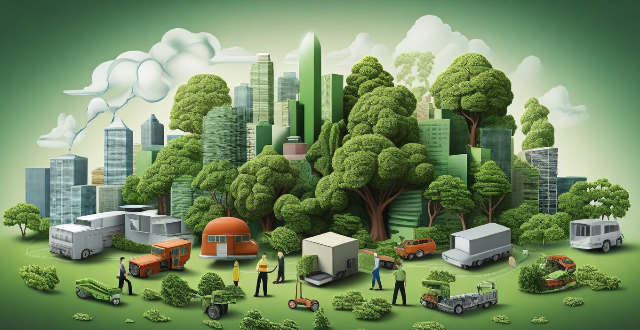
How do climate commitments impact economic growth and development ?
The impact of climate commitments on economic growth and development is multifaceted, with both positive and negative aspects. On the positive side, these commitments stimulate innovation in renewable energy sources and energy efficiency, create new markets for green products and services, improve public health by reducing air pollution, and enhance international cooperation. On the negative side, there are transition costs associated with shifting from fossil fuels to renewable energy sources, potential job displacement in traditional industries, trade-offs between environmental protection and economic growth, and unequal distribution of benefits and costs. Despite these challenges, prioritizing sustainability can lead to long-term economic growth while protecting the environment for future generations.
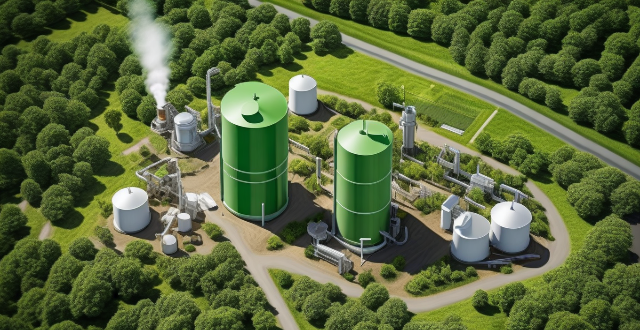
What are the economic implications of reducing greenhouse gas emissions ?
Reducing greenhouse gas emissions is essential for mitigating climate change but has economic implications. The shift to renewable energy requires initial investments but can create jobs and reduce reliance on fossil fuels. It fosters innovation and green jobs but may impact fossil fuel industries negatively. Regulatory changes like carbon pricing and compliance standards can increase operational costs for businesses. Globally, it affects market dynamics and trade, with potential for carbon leakage and competitive advantages in green technology markets. Consumer behavior might shift towards sustainable consumption and energy efficiency. Social welfare considerations include equity concerns and potential health benefits from reduced air pollution. Balancing environmental goals with economic factors is key to a successful transition to a low-carbon economy.
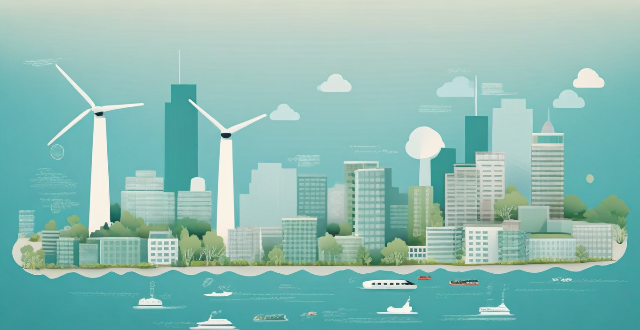
What are the economic implications of a climate emergency ?
The climate emergency, primarily caused by human activities, has significant economic implications affecting various sectors of the global economy. These include impacts on natural resources such as water scarcity, soil degradation, and energy supply; loss of biodiversity affecting ecosystem services and tourism; reduced crop yields and livestock production affecting agriculture and food security; risks to infrastructure and urban areas from flooding and heat waves; direct and indirect effects on human health; and broader impacts on global economic growth and international trade. Addressing these challenges requires coordinated efforts from governments, businesses, and individuals around the world to reduce greenhouse gas emissions and adapt to the changing climate.

How do economists analyze and interpret economic indicators ?
Economists use various methods to analyze and interpret economic indicators, including data collection, statistical analysis, modeling, forecasting, and policy recommendations. They collect data from government agencies, private companies, and international organizations, and use statistical techniques to estimate missing data points. Once the data is collected, economists use statistical tools to analyze it, looking for trends, patterns, and relationships between different variables. They also create models to help them understand complex economic systems, using mathematical equations to represent the relationships between different variables and test hypotheses about how these variables interact. Based on their analysis and modeling, economists make predictions about future economic conditions, using historical data and current trends to forecast future growth rates, inflation rates, unemployment rates, etc. Finally, based on their analysis and forecasting, economists make policy recommendations to governments and businesses, which can include tax policies, monetary policies, trade policies, etc.

What are the economic implications of climate change on international relations ?
Climate change has significant economic implications that can affect international relations in various ways, including impacts on agriculture, energy, tourism, trade disputes, migration, and opportunities for cooperation or competition. Countries must work together to address this global challenge and mitigate the negative economic impacts of climate change while strengthening diplomatic ties.

What is the relationship between energy prices and economic growth ?
The interplay between energy prices and economic growth is multifaceted, with each influencing the other in various ways. High energy prices can impede economic expansion by escalating production costs, diminishing consumer purchasing power, and fostering inflation. They might also spur investment in alternative energies and drive resource reallocation towards efficiency, counterbalancing some of their immediate negative impacts. Conversely, robust economic growth often amplifies energy demand, propelling prices upwards unless compensated by enhanced supply or technological advancements that boost efficiency. This intricate relationship underscores the importance of strategic policy interventions to manage energy pricing dynamics for sustainable economic development.

What are the economic implications of global warming for different countries ?
Global warming has significant economic implications for countries worldwide, affecting sectors like agriculture, health, infrastructure, insurance, energy, and labor markets. Developing nations often face challenges related to food security, health concerns, and infrastructure damage due to extreme weather events. Developed nations may see impacts on insurance and property markets, the energy sector, and labor productivity. Globally, there can be trade disruptions, migration and security issues, and financial market fluctuations. Coordinated international efforts are crucial to mitigate these effects and adapt to the changing environment.
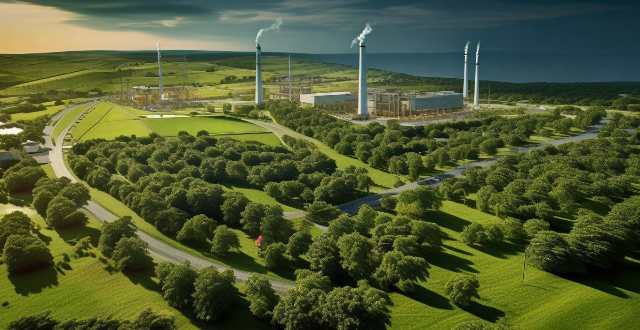
How can we balance economic growth with environmental sustainability ?
Balancing economic growth with environmental sustainability requires a multifaceted approach that includes promoting green infrastructure and renewable energy, encouraging sustainable business practices, fostering innovation and technology development, educating and engaging stakeholders, and implementing policies and regulations. By taking these steps, we can create a more sustainable future where economic prosperity coexists with environmental well-being. Achieving this balance will require ongoing effort from all sectors of society, including governments, businesses, communities, and individuals alike.
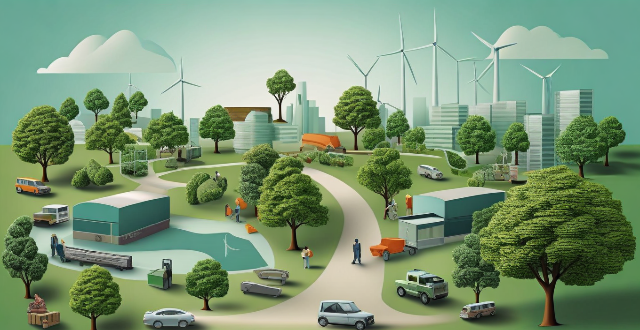
What are the economic implications of enacting stringent climate change legislation ?
The article discusses the economic implications of stringent climate change legislation, which include job creation in renewable energy and green infrastructure sectors, potential increases in energy and food prices, new business opportunities in innovation and carbon trading, and investment in clean technology leading to economic growth. However, there are also short-term transition costs and job displacement issues. Despite these challenges, the long-term benefits such as improved air quality and increased resilience against natural disasters make the implementation of such legislation beneficial for future generations.
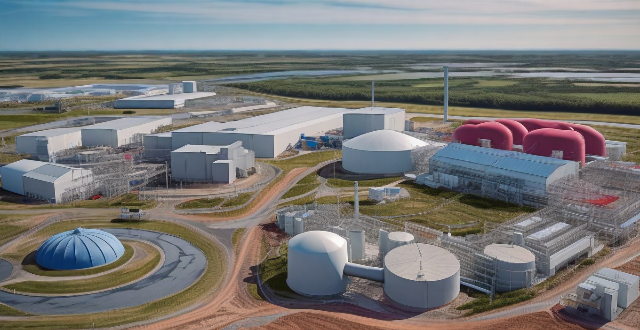
How does Cross-Border Payment impact global trade ?
Cross-border payment plays a crucial role in the global trade ecosystem by enabling businesses to buy and sell goods and services internationally. It reduces transaction costs, enhances transparency and efficiency, and promotes economic growth. However, challenges related to regulatory compliance, currency fluctuations, and technological barriers need to be addressed.

How can climate and environmental policies be designed to promote sustainable economic growth ?
This text discusses the integration of environmental considerations into economic planning, promoting renewable energy sources, encouraging energy efficiency, supporting green infrastructure, promoting circular economy practices, strengthening environmental regulations, and fostering international cooperation to promote sustainable economic growth.

What are the potential economic impacts of implementing the Paris Climate Agreement ?
Implementing the Paris Climate Agreement could have various economic impacts, including stimulating innovation and job creation in renewable energy sectors, reducing fossil fuel dependency, improving public health, and promoting green growth. However, there may also be short-term costs of transition, impacts on traditional industries, adjustment for businesses, and global economic imbalances. To mitigate negative impacts, governments and organizations can provide support for workers transitioning to new industries, implement carbon pricing mechanisms, engage in public-private partnerships, and cooperate internationally. Overall, the long-term benefits of avoiding catastrophic climate change outweigh the short-term economic costs, making the agreement a crucial step toward a sustainable future.